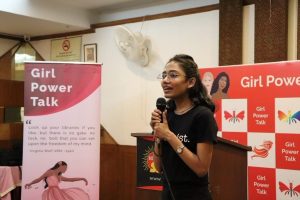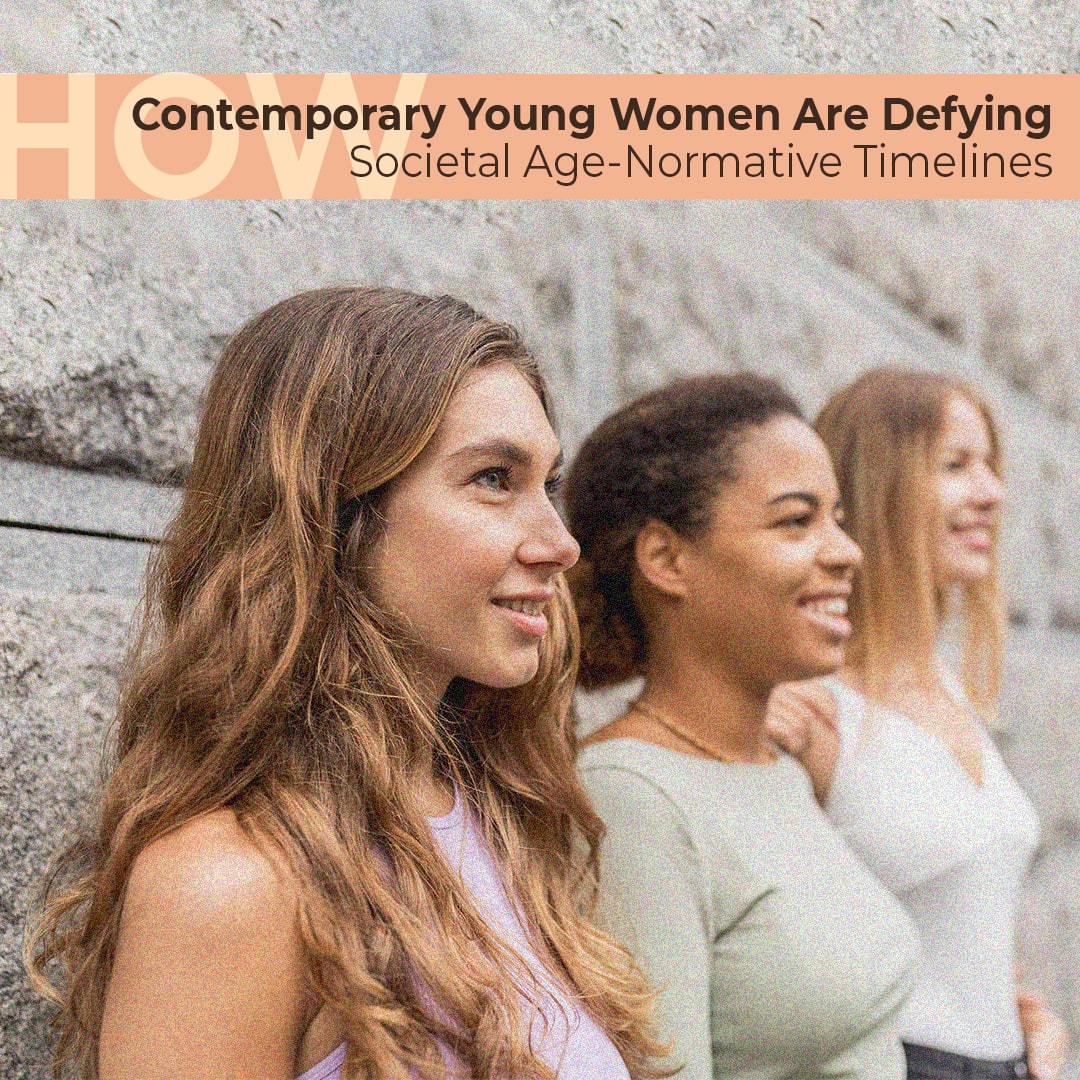CATEGORIES
#Breaking Stereotypes #Gen Z #Women EmpowermentFrom the time they were little girls, society has been reminding women that time moves differently for them, and that they should make hay while the sun shines because, apparently, they depreciate with age. Growing up, girls are constantly reminded of the fact they mature sooner than their male counterparts. Although this is true with regards to brain development, our youth-obsessed society makes women feel as if they are running out of time and approaching an “expiration date”.
Many women feel pressured to have it all — stable career, financial independence, marriage, and a child — before turning 30. While this manifests differently around the world and across cultures, according to a Vanity Fair story, women around the world feel pressured to meet these societal expectations, with some settling for less romantically and/or professionally. In some cultures, it is common to hear someone say that a woman is single or childless because she rejected suitors when she was younger. Granted, research shows that the safest range of maternal age to bear children is 20-30 years, but that shouldn’t be the basis of starting a family. Women should be free to make informed choices when they feel ready, and not because they cracked under societal pressure.
The illusion is that your 20s are a time where you get to tick off all the societal markers of adulthood. The reality, however, is that this decade is often filled with uncertainty, a lot of trial and error, and the realization that life is not as shiny as the movies made it out to be. We get some things right and others wrong. If you’re lucky, the lessons you learn and the choices you make during these crucial years positively impact how you step into the proverbial third floor, and beyond. In her book, The Defining Decade: Why Your Twenties Matter — And How to Make the Most of Them Now, clinical psychologist Meg Jay argues that the twenties are a pivotal period in one’s life as 80 percent of life’s most defining moments happen by age 35. According to the book, the choices we make during those first years of adulthood have far-reaching consequences across years and even generations.

Redefining Adulthood Milestones
I once asked my mother what the right age for a girl to get married was. “Twenty-five,” she said. “Thirty for a man.” At the time, I found the answer — one that planted several timelines in my mind — reasonable. 25 seemed light years away, and frankly, old enough. By the time she was 25, my mother was married with two kids. My grandmother before her was the subject of an arranged marriage at only 16. At 25, I could not keep a single houseplant alive and, in more ways than one, I was not moving forward into adulthood the way I had been expected to. But times now are different from the 90s and 50s when my mother and grandmother were in their twenties.
Millennials — currently at the prime of their age — are not transitioning into traditional adulthood roles as fast as their parents did, a process psychologists have dubbed ‘emerging adulthood.’ According to a 2017 U.S. Census report, young people today are less likely than they were in the mid to late twentieth century to reach traditional markers of adulthood such as completion of education, moving out of the parental home, securing a job with a decent pay, marriage, and becoming a parent.
In large part, this delay can be attributed to economic challenges experienced by a majority of young adults worldwide. But the definition of adulthood among young people, especially women, is changing because today there are far more choices than there was a couple of decades ago. Research has found that thanks to the women’s movement, young women today are shifting their mindset and identity from the traditional markers of being a grown up, and associating adulthood with individual meaning, timing, as well as sequence of key life events.
With so many opportunities, including access to education, women can attend college after graduating from high school and later pursue a wide range of careers that were once unavailable to them. According to research, gender parity reached in the 1980s made it possible for women to outpace men in enrollment to postsecondary institutions, degree attainment, and entrance into graduate degree programs, with women more likely to complete their degree and graduate sooner than their male counterparts who receive a bachelor’s degree. It may not be surprising, then, that the average age of marriage as well as first childbirth for women is rising as compared to twenty years ago. The census also found that women today are delaying parenthood and marriage, with parenthood likely to precede marriage for many women.

A New Approach to Having It All
If you’re a woman, then you’re probably familiar with the phrase “having it all,” and chances are it is somewhere on your wish list. According to a New York Times article, the expression, which refers to finding balance and success in your personal and professional life, dates back to the 1980s, where it was popularized by Helen Gurley Brown’s best seller book, Having It All: Love, Success, Sex, and Money…Even If You’re Starting with Nothing, published in 1982. 40 years later, this short, rather vague phrase still incites a lot of debate on whether women can balance career and family and excel at both. What’s for certain, however, is the fact that the term continues to burden women with societal expectations.
In today’s digital age, where we are constantly bombarded with over-the-top feeds of people — some below the legal drinking age — who are living the kind of life that most of us can only dream of, it is easy to feel like you are running out of time and your chances of “having it all” getting slimmer with each passing year. But why compare your behind-the-scenes to someone else’s highlight reel? The fact that some people are able to achieve certain things in their 20s, and some aren’t, does not make either one a default timeline for everyone.

Today, the concept of “having it all” has taken on new and diverse meaning. Different factors, including experience, mindset, as well as culture and class differences, shape an individual’s definition of “having it all” and determines how and when they achieve certain milestones. Most often than not, ticking all the societal boxes does not equal happiness. In large part, happiness comes from contentment, which is determined by how you feel within yourself. What you have or have not achieved by a certain age does not matter as long as you are living a purposeful life and are at peace with who and where you are. While having it all may mean a well-paying job, marriage, and kids to one woman, to another, the concept may simply mean living a life of their own choosing that aligns with their value systems and devoid of internal and/or external conflict.
There’s no one way to do life and no one-size-fits-all timeline. Some people will be great parents at 24, and others will still depend on their parents at 29. Life is fundamentally unpredictable and ever-changing, and so are we and our life directions. It is okay if you’re still figuring things out — heck, it is okay to be single at 30. Every distinct age is a life event worth celebrating, that should be free of societal-imposed milestones.


